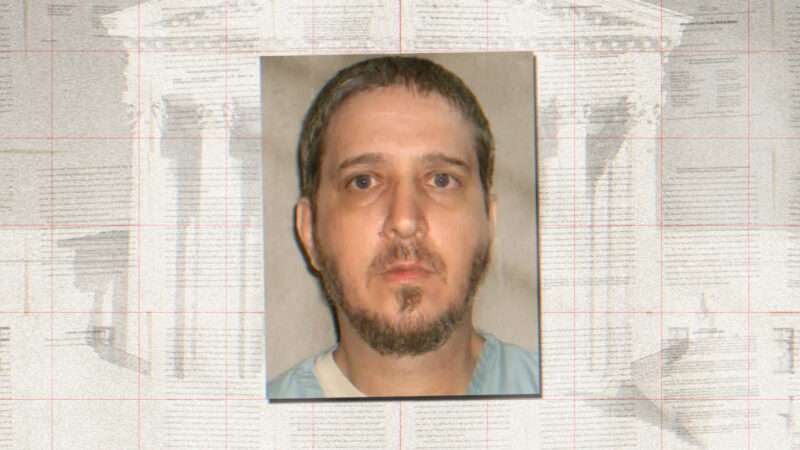
The Supreme Court announced on Monday that it will hear a case deciding whether Richard Glossip, an Oklahoma death-row inmate, can receive a new trial. Glossip, who was convicted of the 1997 murder of his boss, Barry Van Treese, has long maintained his innocence—and narrowly avoided execution multiple times.
The Supreme Court has rarely heard appeals from death-row inmates in recent years. But Glossip’s case has been mired in an unusual level of controversy. Notably, no one claims that Glossip murdered Van Treese. The murder was instead committed by Justin Sneed, the 19-year-old maintenance man of the hotel where Glossip served as manager. However, Sneed testified that Glossip had actually planned the crime after reaching a deal with prosecutors that would allow Sneed to avoid the death penalty himself.
Glossip’s conviction almost immediately fell under suspicion. He received a retrial in 2004 but was again convicted and sentenced to death. Over the years, Glossip has remained on death row in Oklahoma and narrowly avoided execution nine separate times.
In 2021, a bipartisan group of legislators ordered an independent investigation into Glossip’s case. The resulting report cast serious doubt over the veracity of Glossip’s conviction. The report found that the state had deliberately destroyed evidence before Glossip’s trial and that police had “[elicited] Sneed to mention Glossip’s name” during his interrogation. The report even went so far as to find “additional evidence, never presented to the jury or to any court, that would likely have led to a different outcome in the case,” according to the outside investigators.
Following the release of a second investigation last year, Oklahoma Attorney General Gentner Drummond announced that he was requesting that Glossip’s conviction again be overturned and a new trial granted.
“After thorough and serious deliberation, I have concluded that I cannot stand behind the murder conviction and death sentence of Richard Glossip,” said Drummond in a statement last April. “Considering everything I know about this case, I do not believe that justice is served by executing a man based on the testimony of a compromised witness.”
But an appeals court refused to order Glossip a new trial just three weeks later. Soon after, a parole board denied Glossip clemency—despite Drummond himself testifying in favor of Glossip—and attempted to go forward with Glossip’s execution.
The Supreme Court stepped in last May to halt Glossip’s execution. Now, the Court has agreed to hear a case that could determine whether Glossip receives a new trial. In recent years, the Court’s conservative majority has been hesitant to hear cases from death-row inmates. The particularly glaring issues with Glossip’s cases likely motivated the unusual step.
“We have a situation here where the attorney general of the state, the highest law enforcement officer in the state, has said that Richard Glossip did not receive a fair trial,” Don Knight, Glossip’s attorney, told CNN’s Jake Tapper on Monday. “And that should be something that we think the Supreme Court should take very seriously.”
The post This Death Row Inmate Says He's Innocent. The Supreme Court Has Agreed To Hear His Case. appeared first on Reason.com.
from Latest https://ift.tt/g0XJGCZ
via IFTTT